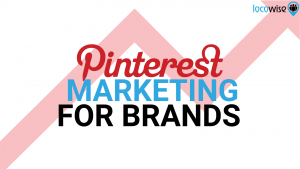 In a recent article, we discussed the welcome resurgence of entrepreneurial businesses in the United States, the vital and prominent role they play in the economy, and how a light MSP/VMS program can provide them with the same advantages that large corporations enjoy. When we think of these organizations, however, we shouldn’t limit that consideration to clients alone. Staffing suppliers also represent a sector of privately held, entrepreneurial business owners who are growing — even if you don’t know their names off hand. They can reap the benefits of participating in an MSP program. More importantly, they can also strengthen MSP solutions as valuable, attentive partners.
In a recent article, we discussed the welcome resurgence of entrepreneurial businesses in the United States, the vital and prominent role they play in the economy, and how a light MSP/VMS program can provide them with the same advantages that large corporations enjoy. When we think of these organizations, however, we shouldn’t limit that consideration to clients alone. Staffing suppliers also represent a sector of privately held, entrepreneurial business owners who are growing — even if you don’t know their names off hand. They can reap the benefits of participating in an MSP program. More importantly, they can also strengthen MSP solutions as valuable, attentive partners.
Orchestrating an end-to-end MSP/VMS program is a delicate balancing act. For clients, the MSP helps shoulder the responsibilities of administering a complex indirect labor program, liberating business leaders to devote their energies to mission critical objectives: running and growing their companies. And the fulcrum on which the strength of the program rests is a committed and high-performing supply base. Too often, though, it seems that a handful of MSPs discount lesser-known suppliers in favor of massive, publicly traded corporations. That’s a missed opportunity for everyone.
The benefits of giving new suppliers a chance to shine
Just as there’s a new generation of talent, there’s also a new generation of staffing curators. Some are boutique and category specific suppliers. Some have proven strengths in filling niche skills or positions in sparsely populated geographies that the largest players find difficult to cover, or don’t concentrate on because of a perceived lack of profit. Though they might be leaner in company size, they’re big on specialization.
New suppliers can be pivotal in delivering exceptional talent. They’re helping to spur innovation and uncover greater value from their unique perspectives, approaches and strategies. They recognize the potential of new methodologies and recruiting models. In fact, they’re pioneering the latest and greatest — tapping into the power of the Human Cloud, utilizing alternative sourcing techniques, developing vast networks of independent recruiters, and increasing their talent pools exponentially in the process. The very largest and oldest enterprises often attempt to staff every labor category imaginable to capture the bulk of their clients’ business — utilizing internal recruitment teams, established candidate benches and traditional processes. They’re less apt to take risks and explore different avenues that could define the future of business success.
Unfortunately, this can lead to a lack of focus and dilution of service. The latest breed of staffing curators know their niche and are actively devising new means for supporting a burgeoning array of key categories with highly qualified workers, unparalleled customer service and the best rates. They can ramp up quickly to fill short-term, urgent position needs or scale down as needed. MSPs may also realize a wider strategic advantage by introducing these newer, less well-known suppliers into the mix — it forces all partners in the program to re-compete their business, creating a process that continually drives value, cost savings and optimal results.
Inviting new firms into a program allows a more diverse group to present their services and pricing alongside the recognizable giants. During this evaluation and selection process, MSPs may discover that some of their established suppliers will no longer be able to meet the program’s requirements for hard-to-fill job categories, bill rates, out-of-way regions or markups. This process determines the best suppliers with the best rates for the best candidates. In many cases, those players turn out to be newer firms with:
• Better abilities to provide required skill sets – now and in the future
• Efficient and well-documented candidate recruitment processes
• Experience filling specific positions in the client’s industry, especially when new or niche job titles have come into play
• Closer cultural alignment to the MSP and the client – shared visions and values for the current or transforming environment
How MSPs can attract entrepreneurial suppliers for program success
Provide real opportunities
The vast majority of MSP/VMS programs are supplier funded. To bring out the best in suppliers operating within a “pay to play” model, MSPs must inspire and incentivize their staffing partners. They can accomplish this by helping suppliers gain access to a broader spectrum of opportunities through their programs, which they may not otherwise have had by attempting to sell their services directly to clients.
Strive for neutrality
Vendor neutrality emphasizes performance, levels the playing field for suppliers and makes a great deal of sense in the first iteration of the MSP program. When suppliers sense an equitable arrangement where they will be measured fairly on their merits, they will work harder to perform. As the program matures, the MSP and client hiring managers have time to track performance and identify standout suppliers for preferred distribution lists and priority tiers across categories (e.g., Professional, Technical, Engineering, Industrial, et al.). MSPs may just find that their newer partners are placing superior talent at the most competitive rates. Moving them into preferred tiers later in the program ensures the continuation and evolution of these mutual rewards.
Enforce realistic and reasonable requirements
There are situations when MSPs enforce insurance, financial or contractual requirements that immediately preclude a lot of suppliers from participation. You may never meet your next elite staffing partner if you’re forcing that company to compete with billion dollar agencies before you’ve even examined the scope of their capabilities, breadth of services, recruitment strategies and overall value proposition for the program.
Strive for visibility, communication and partnerships
The best staffing partners constantly study data from the engagement through HR analytics — in the VMS or other software — to forecast requirements, identify trends and anticipate demands. During the relationship, they also gain a sense of peaks and valleys over time, and how hiring managers and MSPs react to them. The result is a strategic mixture of perception and data-driven decision making. This level of foresight and familiarity empowers suppliers to stand in a state of readiness — they can visualize where and when issues could arise, and then take preventative steps to squash them before they manifest.
Encouraging open dialog with suppliers at the onset of the program will foster greater levels of confidence and loyalty in staffing partners.
• Before the program’s deployment date, allow suppliers to meet with client stakeholders to address all mutual concerns and expectations.
• Be transparent with terms and conditions, performance metrics, SLAs, pay rates, markups, conversion processes, payment schedules and all other material aspects of the program.
• Develop specific training programs for suppliers to take place during the final stages of implementation, which cover program policies, VMS usage, support options and issue resolution procedures.
• Build supplier adoption upfront. Articulate the benefits your MSP program will offer to them (e.g., reduced administrative expenses through automation, access to other opportunities with different clients, etc.)
As Erika Halverson, LinkedIn’s global contingent workforce program manager, noted: “Suppliers and recruiters want to work with contingent workforce programs where they have a chance to succeed, shine and be heard. Programs where suppliers are treated as commodities and are interchangeable run the risk of having top quality candidates being submitted to other programs because of a better relationship. Markups go a long way but partnership and clarity of program can go further.”
Grow your businesses together
When MSPs help develop high-performing supplier partners, they’re also making an investment in their own businesses. MSPs who engage firms that haven’t yet established big names often receive a far greater level of expertise, streamlined processes, in-depth understanding of objectives and needs, and personalized attention. The largest traditional agencies tend toward a generalist approach — they must sometimes turn down requests or recommend them to another party. A generalist has more clients and more disparate work to juggle in terms of project management. And a harried generalist is more prone to making mistakes — something that could ultimately cost a lot more to fix. In the end, there’s no guarantee of quality, speed or cost savings.
When MSPs give new supplier partners a chance, they stand to gain stellar talent with consistently
superior metrics, enhanced support, amazing service, and the most competitive rates.
Business & Finance Articles on Business 2 Community
(113)






